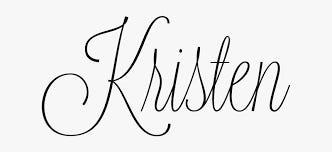I am so excited to share advice on building your author brand from Abigail Monti, a publicist at Pacific & Court, a NYC-based book PR and marketing agency. She previously worked with Rose Avenue Literary, where she boosted brand visibility and client engagement through social media content and industry-specific blog posts. When she’s not supporting book campaigns, she enjoys baking her way through dessert cookbooks and maximizing her library card’s hold list. If you’ve been waiting to spend time on your author brand, Abigail weighs in on why the perfect time to start is…now!
If you, like many writers, are waiting to call yourself an “author” until after you’ve secured a book deal, you might want to rethink your strategy. While it might feel ambitious to claim that title before your work is published, building your brand early could be the very thing that helps you land a book deal.
The reality of modern publishing is that a strong online presence can make a huge difference. Publishers want to invest in authors who already have an audience, even if it’s a small but engaged one. To you, a few thousand followers might not seem like much, but to them, it signals potential book buyers. Even if you’re still writing your manuscript, an established platform shows you’re serious about your career and gives your book market credibility when it comes time to query. That time might seem far off, but if you start now, you can grow your audience organically and make your eventual book debut much smoother.
So where should you start? Here are a few key steps.
Get on Social Media
First things first: create author handles on social media. Even if you don’t plan to post right away, having your name secured will prevent someone else from taking it. If you plan to have accounts on multiple platforms, try to make your handle identical on each—this will make you easier to find.
The best platform for you and your book(s) depends on your audience. Different readers and different genres naturally gravitate toward certain spaces online. For example, if you’re writing YA fantasy or romance, TikTok is a great place for discoverability, since younger readers tend to be highly engaged there. Meanwhile, if your book leans more literary or nonfiction, Twitter (X) might be a better fit, as it’s where many journalists, critics, and industry professionals discuss books. If you’re targeting a predominantly adult audience, Facebook (and Facebook groups) will probably suit you the best. Instagram is generally universal—aim to have an account here, at the very least.
That said, social media can feel overwhelming. The key is consistency, not perfection. You don’t need to post daily, but should plan to engage regularly. Share your writing process, book recommendations, or even just thoughts about storytelling. Try checking out social media accounts of other popular authors in your niche to see the kind of content they post.
Make an Author Website
You might be thinking, “Do I really need a website if I don’t have a book?” Short answer: Yes! A website is an easy way for literary agents and publishers to learn all they need to know about you all in one place. Wordpress, Squarespace, Substack, and Canva all offer easy and free website templates that even the least tech-savvy author can navigate. At a minimum, your website should include a bio and links to your social media.
If you have the time, SEO-friendly content is the next-level way to start growing your online audience. Content like blog posts, book reviews, and writing tips can help drive traffic to your site over time. Just make sure to prioritize content that resonates with readers in your niche!
If you have short stories, poems, or essays published elsewhere, you can also create a portfolio section to showcase them. And if you’re considering posting chapters or sneak peeks, platforms like Substack and AO3 allow you to retain full copyright—but always check with potential publishers, as some only accept “unpublished” work.
Build a Visual Brand
Branding isn’t just for big corporations—it’s for authors, too. Having a cohesive visual brand makes you more recognizable online and immediately makes your work look more professional to agents and publishers. You’ll want to consider things like colors, fonts, imagery, and tone.
For example, if you write dark, atmospheric fantasy—think Leigh Bardugo or V.E. Schwab—your brand might lean into moody visuals, deep jewel tones, and gothic or minimalist fonts. On the other hand, if you write heartwarming romance, like Emily Henry or Tessa Bailey, you might go for soft pastels, playful fonts, and a warm, approachable tone in your posts. No matter your genre, the key is consistency—your audience should get a clear sense of what to expect from both your books and your online presence. Try to incorporate your chosen branding across all online media, from your social media graphics to your website logo.
I hope this gives you the inspiration to start building your author brand today! For more tips on book publicity, visit Abigail at Unsolicited Manuscript on Substack. And please feel free to leave any questions or thoughts for Abigail in the comments!
Until next time,






Great advice!
Easy steps to affirm my thinking or a few clarity points. Much appreciated.